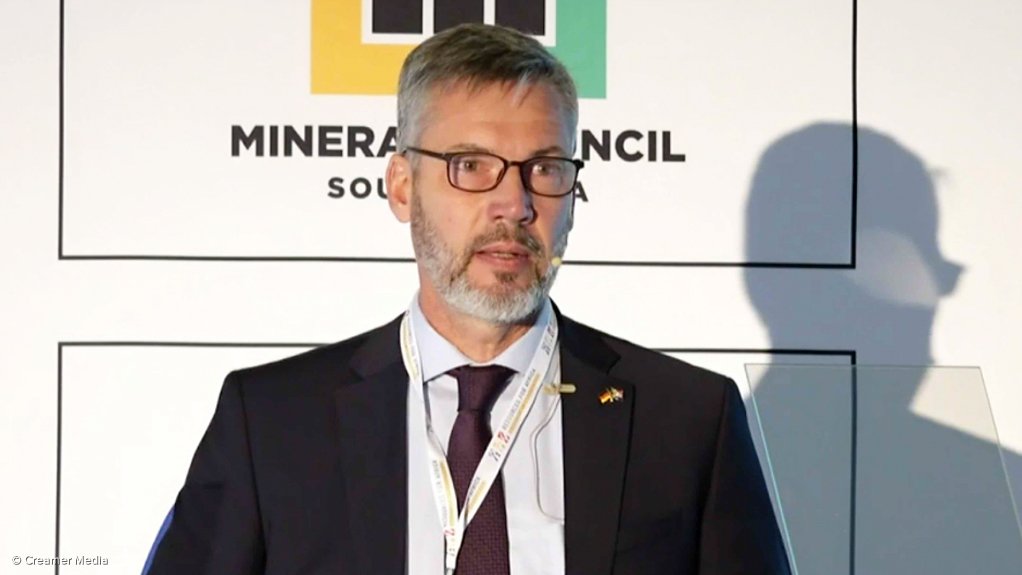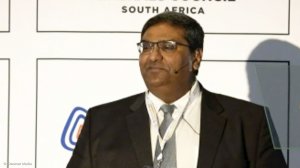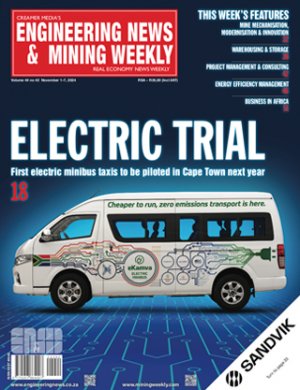JOHANNESBURG (miningweekly.com) – South Africa dare not fail in securing future demand for its "incredible" platinum group metals (PGMs) endowment, the Hydrogen Economy Discussion heard on Wednesday.
Anglo American Platinum projects and environment executive head Prakashim Moodliar outlined the widespread marketing effort under way to boost PGMs demand as well as the hugely positive benefit of adoption of the hydrogen economy.
Moodliar, a keynote presenter along with German Embassy deputy head of mission Enrico Brandt, revealed the considerable work under way to map South Africa’s Hydrogen Valley further, while Brandt provided insight into the momentous acceptance of hydrogen in Germany. (Also watch attached Creamer Media video.)
Moreover, Moodliar outlined how the building of the hydrogen economy in South Africa would enable significant job creation, reduce carbon emissions, support social change and drive economic development.
Currently, the bulk of PGMs are used in catalytic converters to reduce emissions from internal combustion engines (ICEs) and the shift to battery electric vehicles, therefore, poses a risk to South Africa’s PGMs industry, which employs 172 000 people, making it one of this country’s largest private sector employers.
“Considering that every employed person supports an average of ten other people, we dare not fail in securing future demand for this incredible natural endowment.
“The significant growth forecasts for the hydrogen economy will offer significant demand opportunities for metals, including aluminium, copper, iridium, nickel, platinum, palladium and zinc, to support these hydrogen technologies.
“This would include metal for renewable electrical technologies, and the electrolysis for renewable hydrogen, carbon storage for low carbon, nitrogen, or fuel cells using hydrogen to power transport.
“We know that reaching the goals of the Paris Agreement to keep the global temperature rise to well below 2o would mean a quadrupling of mineral requirements for clean energy technologies by 2040,” said Moodliar.
A typical battery electrical car for example requires six times more mineral inputs than a conventional ICE vehicle, with metal supply and investment falling far short of what is needed to reach the Paris Agreement.
A business plan has been submitted to South Africa’s State-owned Industrial Development Corporation to secure funding from Germany’s KfW development bank for Project Rainbow, which focuses on building a hydrogen freight corridor for trucks and buses.
“Rainbow is also looking at localised manufacture and assembly of vehicles to support building a local supply chain,” said Moodliar, who added during the discussion covered by Mining Weekly that Rainbow has been afforded strategic infrastructure project, or SIP, status.
Brandt outlined Germany’s commitment to hydrogen as part of its commitment to the Paris Agreement that calls for a fundamental shift away from fossil fuels and towards sustainable alternatives.
“The transition will affect everyone and everything, our way of life, politics and business,” Brandt said.
“We’re facing the most fundamental transformation of the global economy in our lifetime, comparable to the Industrial Revolution in the past,” he added during the event chaired by mining luminary Bernard Swanepoel.
Edited by: Creamer Media Reporter
EMAIL THIS ARTICLE SAVE THIS ARTICLE
ARTICLE ENQUIRY
To subscribe email subscriptions@creamermedia.co.za or click here
To advertise email advertising@creamermedia.co.za or click here














